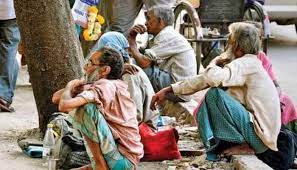Today Current Affairs: 12th August 2021 for UPSC IAS exams, State PSC exams, SSC CGL, State SSC, RRB, Railways, Banking Exam & IBPS, etc
Table of Contents
Fugitive economic offender:
UK High Court has granted fugitive diamond merchant Nirav Modi permission to appeal against a magistrates’ court order, in favour of extradition to India to face charges of fraud and money laundering before the Indian courts, on mental health and human rights grounds.
- The U.K.’s Home Department, in April 2020, approved the extradition of diamond merchant Nirav Modi to India in connection with the ₹13,758 crore Punjab National Bank (PNB) fraud.
- This came two months after the Westminster Magistrates’ Court in London ruled that a prima facie case was made out against him.
Fugitive economic offender:
- A special court, in December 2019, declared diamond businessman Nirav Modi a fugitive economic offender, on a plea of the Enforcement Directorate.
- A person can be named an offender under the law if there is an arrest warrant against him or her for involvement in economic offences involving at least Rs. 100 crore or more and has fled from India to escape legal action.
- The investigating agencies have to file an application in a Special Court under the Prevention of Money-Laundering Act containing details of the properties to be confiscated, and any information about the person’s whereabouts.
- The Special Court will issue a notice for the person to appear at a specified place and date at least six weeks from the issue of notice.
- Proceedings will be terminated if the person appears. If not the person would be declared as a Fugitive Economic Offender based on the evidence filed by the investigating agencies.
- The person who is declared as a Fugitive Economic Offender can challenge the proclamation in the High Court within 30 days of such declaration according to the Fugitive Economic Offenders Act, 2018.
NASA’s Perseverance rover:

NASA’s Perseverance rover is exploring the Jezero Crater on Mars and attempting to collect its first rock samples.
- However, no rock samples were collected during the first attempt.
About Perseverance Rover:
- It was launched in 2020 aboard a United Launch Alliance Atlas V.
- It carried a unique instrument, MOXIE or Mars Oxygen ISRU Experiment: which for the first time manufactured molecular oxygen on Mars using carbon dioxide from the carbon-dioxide-rich atmosphere (ISRU means In Situ Resource Utilization: or the use of local resources to meet human needs or requirements of the spacecraft).
- It carried Ingenuity, the first ever helicopter to fly on Mars.
- It is the planned first step to bring back rock samples from Mars for analysis in sophisticated laboratories on Earth: with the goal of looking for biosignatures: or signatures of present or past life.
Mission objectives:
- Look for signs of ancient microbial life.
- Collect Martian rock and dust samples for later return to Earth.
- Deliver an experimental helicopter.
- Study the climate and geology of Mars.
- Demonstrate technology for future Mars missions.
Marburg Virus:

West Africa’s first case of the extremely contagious and deadly Marburg virus was confirmed in Guinea.
- Its first case was first identified just two months after the country was declared free of Ebola.
- Both the Marburg case and this year’s Ebola cases were detected in Guinea’s Gueckedou district.
- The first cases of the 2014-2016 Ebola epidemic, the largest in history, also were from the same region in Southeastern Guinea’s forest region.
- Marburg virus disease is a highly virulent disease that causes haemorrhagic fever, it is carried by bats with a fatality ratio of up to 88%.
- It is in the same family as the virus that causes Ebola virus disease.
- Two large outbreaks that occurred simultaneously in Marburg and Frankfurt in Germany, and in Belgrade, Serbia, in 1967, led to the initial recognition of the disease.
- The outbreak was associated with laboratory work using African green monkeys (Cercopithecus aethiops) imported from Uganda.
- Subsequently, outbreaks and sporadic cases have been reported in Angola, Democratic Republic of the Congo, Kenya, South Africa and Uganda.
- There have been 12 major Marburg outbreaks since 1967, mostly in southern and eastern Africa.
Human- Infection:
- Human infection with Marburg virus disease initially results from prolonged exposure to mines or caves inhabited by Rousettus bat colonies.
Rousettus is a genus of Old World fruit bats or megabats. They are sometimes referred to as dog-faced fruit bats, or flying foxes. - Transmission: Once an individual is infected with the virus, Marburg can spread through human-to-human transmission via direct contact (through broken skin or mucous membranes) with the blood, secretions, organs or other bodily fluids of infected people, and with surfaces and materials (e.g. bedding, clothing) contaminated with these fluids.
Symptoms:
- Headache, vomiting blood, muscle pains and bleeding through various orifices.
- Symptoms become increasingly severe and can include jaundice, inflammation of the pancreas, severe weight loss, liver failure, massive hemorrhaging, and multi-organ dysfunction.
National Mission on Edible Oil-Oil Palm:

The Prime Minister has announced a new national initiative on palm oil production to help increase farm incomes.
- The scheme, called National Edible Oil Mission-Oil Palm (NMEO-OP), for self-reliance in edible oil involves investment of over Rs. 11,000 crore (over a five year period).
- Aims:
- To harness domestic edible oil prices that are dictated by expensive palm oil imports.
- To raise the domestic production of palm oil by three times to 11 lakh MT by 2025-26.
- This will involve raising the area under oil palm cultivation to 10 lakh hectares by 2025-26 and 16.7 lakh hectares by 2029-30.
- Features:
- The special emphasis of the scheme will be in India’s north-eastern states and the Andaman and Nicobar Islands due to the conducive weather conditions in the regions.
- Under the scheme, oil palm farmers will be provided financial assistance and will get remuneration under a price and viability formula.
- Significance of the Scheme:
- It is expected to incentivise production of palm oil to reduce dependence on imports and help farmers cash in on the huge market.
- India is the largest consumer of vegetable oil in the world. Of this, palm oil imports are almost 55% of its total vegetable oil imports.
- India produces less than half of the roughly 2.4 crore tonnes of edible oil that it consumes annually. It imports the rest, buying palm oil from Indonesia and Malaysia, soyoil from Brazil and Argentina, and sunflower oil, mainly from Russia and Ukraine.
- In India, 94.1% of its palm oil is used in food products, especially for cooking purposes. This makes palm oil extremely critical to India’s edible oils economy.
Palm Oil:
- Palm oil is currently the world’s most consumed vegetable oil.
- It is used extensively in the production of detergents, plastics, cosmetics, and biofuels.
- Top consumers of the commodity are India, China, and the European Union (EU).
Draft Indian Ports Bill, 2021:

The present draft Indian Ports Bill, 2021 was circulated on 10th June, 2021 for stakeholders’ comments, prior to the 18th meeting of Maritime States Development Council (MSDC) scheduled on 24th June 2021.
- The draft Indian Ports Bill, 2021 proposes to leave the management and administration of the major ports to the Board of Major Port Authority for each port, constituted by the Major Ports Authorities Act, 2021 and to State Maritime Boards for the management and administration of all non-major ports in each State/UT.
- It require every coastal State and Union Territory to constitute a State Maritime Board, if it does not already exist through State statutes and, which empower the said State Maritime Boards with uniform powers and functions including planning, development, supervisory, administrative and adjudicatory powers and functions.
Gogra:

After the talks on July 31, India and China have taken one more step towards restoring peace and normalcy on the LAC by disengaging at Gogra.
- It has taken 12 rounds of military-level talks to see both sides disengage and put in place buffer zones in the Galwan Valley, the site of the June 2020 clash that marked the worst violence since 1967, Pangong Lake, and now Patrolling Point 17 in Gogra.
- The disengagement process at PP17 took place on August 4 and 5, with a return to permanent bases.
- The next round of talks will discuss PP15 in Hot Springs. Demchok, where China has transgressed in relatively smaller numbers than the deployments seen in Pangong Lake, also remains unresolved.
- Beijing has appeared unwilling to discuss the strategically significant Depsang plains, where the Chinese side has been blocking Indian patrols.
- Hot Springs is a campsite and the location of an Indian border checkpost in the Chang Chenmo River valley in Ladakh near the disputed border with China.
- Gogra is actually in a branch valley of the Changchenmo watered by the Khugrang River, northwest of Hot Springs.
World Lion Day (August 10):

The Prime Minister, Shri Narendra Modi has greeted all those passionate about lion conservation on World Lion Day (August 10).
- Lions, listed as “vulnerable” on the International Union for Conservation of Nature’s Red List of Threatened Species, have lost a vast majority of their habitat — and resultantly their population — primarily because of conflict with humans, poaching, and trophy hunting.
- Seeing this rapid decrease in their population, a group of non-profits and tourism companies created World Lion Day to celebrate the animal and redirect the world’s attention towards them. Organisations such as Panthera and National Geographic Society’s Big Cats Initiative support World Lion Day.
- The Asiatic lions of India are a distant cousin of the much bigger African lions.
- After seeing a decline for some time, the Asiatic lion population has increased steadily in Gujarat’s Gir forest and the larger Saurashtra protected region.
- Their population has gone up from 523 in 2015 to 674 in 2020.
National Mission for Enhanced Energy Efficiency (NMEEE).:

Union Minister for Power informed Rajya Sabha about the National Mission for Enhanced Energy Efficiency (NMEEE).
- NMEEE consists of four initiatives to enhance energy efficiency in energy intensive industries which are as follows:
- Perform, Achieve and Trade (PAT) scheme aims at reducing Specific Energy Consumption (SEC) i.e. energy use per unit of production for Designated Consumers (DCs) in energy intensive sectors, with an associated market mechanism to enhance the cost effectiveness through certification of excess energy saving which can be traded.
- Market Transformation for Energy Efficiency (MTEE) aims for accelerating the shift to energy efficient appliances in designated sectors through incentives and innovative business models.
- Bachat Lamp Yojna (BLY): The programme was developed for replacement of inefficient bulbs with Compact Fluorescent Lamps (CFLs).
- Super-Efficient Equipment Program (SEEP): This programme was designed for market transformation of super-efficient appliances by providing financial stimulus innovatively at critical point/s of interventions.
- Energy Efficiency Financing Platform (EEFP) was launched to provide a platform to interact with Financial Institutions (FIs) and project developers for implementation of energy efficiency projects.
- Framework for Energy Efficient Economic Development (FEEED) was designed for development of fiscal instruments to promote energy efficiency.
Schemes For Beggars:

The Minister of State for Social Justice and Empowerment informed Parliament about SCHEMES FOR BEGGARS.
- The Ministry of Social Justice and Empowerment has formulated a scheme “SMILE – Support for Marginalized Individuals for Livelihood and Enterprise”, which includes sub scheme – ‘Central Sector Scheme for Comprehensive Rehabilitation of persons engaged in the act of Begging’.
- The focus of the scheme is on rehabilitation, provision of medical facilities, counselling, basic documentation, education, skill development, economic linkages of the persons found to be engaged in begging.
- Ministry has released an amount of Rs. 1.50 crore to National Backward Classes Finance & Development Corporation (NBCFDC) for conducting skill development programmes for the persons engaged in begging.
- So far, 514 persons engaged in Begging have been provided skill development training.




